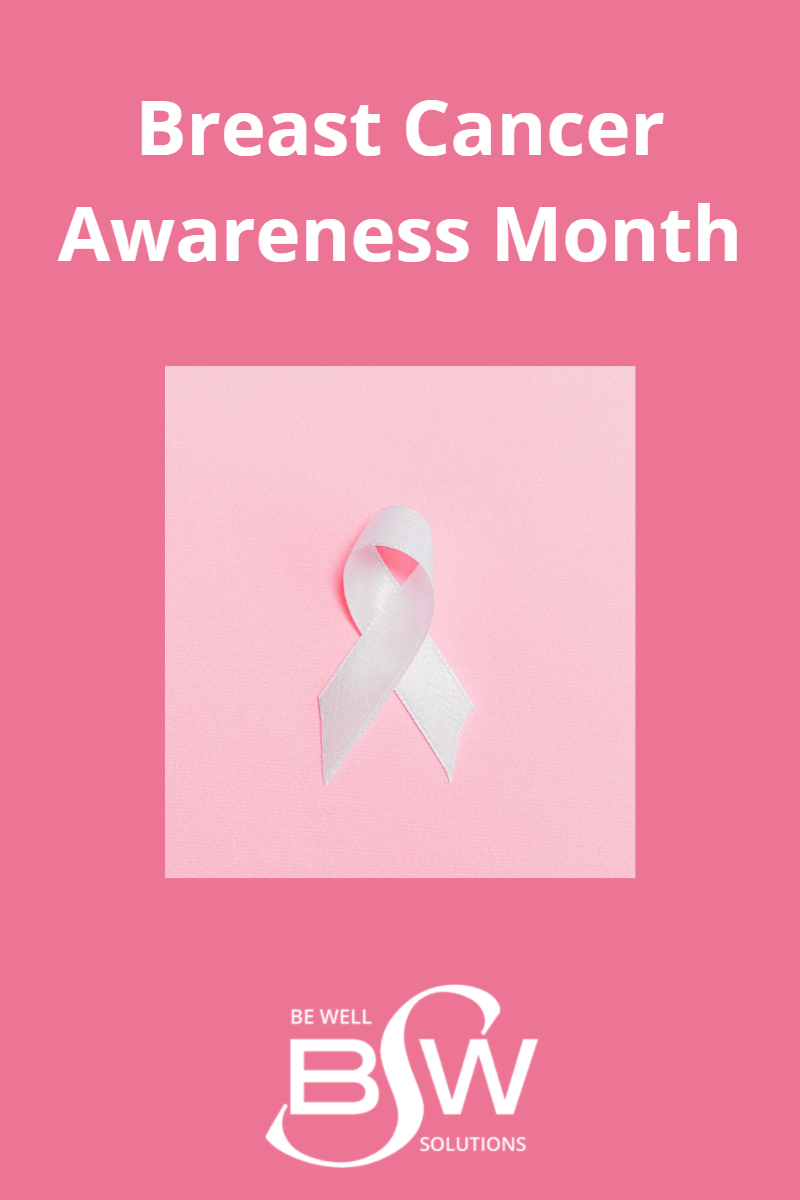
According to the American Cancer Society (ACS), approximately 1 in 8 women will develop breast cancer, making it the second most common cancer in women (skin cancer is the most common.) In addition, breast cancer is responsible for approximately 1 in 35 deaths among women, which makes it the second leading cause of cancer death in females (lung cancer being the first.) While men can also be diagnosed with breast cancer, it is far less common in males than females.
Breast Cancer Risk Factors
There are many risk factors related to breast cancer. Some of the risk factors cannot be changed, and others are under your control. Regardless of your ability to control a risk factor, it is good to be aware of your risks because they affect your chances of developing these diseases. Also, it is important to remember that having or not having a certain risk factor does not necessarily mean you will or will not develop cancer during your lifetime.
Risk Factors You Cannot Change:
Age: Breast cancer is more common in women as they get older. According to the ACS, 2 out of 3 invasive breast cancers are found in women after age 55.
Race, Ethnicity, and Nationality: Caucasian women are more likely to develop breast cancer compared to women of other races and ethnicities. African-American women are more likely to die from this form of cancer.
Family History: Women and men with a first degree relative (parents and/or siblings) who have had breast cancer are at increased risk of developing these diseases.
Genes: The ACS notes that 5 to 10 percent of breast cancer cases are thought to be hereditary, resulting directly from gene defects or mutations.
Risk Factors You Can Change:
Weight: Women who maintain a healthy weight are less likely to develop breast cancer compared to those women who are overweight or obese. The ACS recommends that women balance diet and physical activity to maintain a healthy weight.
Diet: It is unclear what role diet plays in women’s risk of developing breast cancer. The ACS recommends eating a healthy diet with an emphasis on plant sources. This includes eating 5 or more servings of fruits and vegetables every day, choosing whole grains instead of refined grains, and limiting consumption of processed and red meats.
Exercise and Physical Activity: Participation in regular physical activity has been linked to reduced risk of breast cancer in women. The ACS recommends that women exercise for 45-60 minutes of intentional physical activity 5 or more days per week.
Early Detection through Screening is Key
Sometimes, no matter how healthy we live, cancer can touch our lives. During these times, it’s important to remember that cancer is not a death sentence. The National Cancer Institute estimates that approximately 11.1 million Americans with a history of cancer were alive in January 2005. Some of these people were cancer-free, while others still had evidence of some cancer and may have been undergoing treatment. One of the best ways to improve your survival chances is to catch cancer as early as possible. We can do this through the use of screening exams.
Preventive Screenings for Breast Cancer
The American Cancer Society recommends the following breast cancer screenings for women:
- Over Age 40: Women over age 40 should have the option to start screening with a mammogram every year. Women 45 to 54 should get mammograms every year. Women 55 and older can switch to a mammogram every other year, or they can choose to continue yearly discuss mammograms with their physician and decide on the testing schedule that is right for them.
- 20-30 Years of Age: Women in their 20s and 30s should have a clinical breast exam as part of a regular health exam by a health professional, at least every 3 years. After age 40, women should have a breast exam by a health professional every year.
- At 20 Years of Age: Women should begin conducting monthly breast self exams at age 20 and report any breast changes to their health care provider.
These screenings are recommended by the ACS because most doctors believe that tests for breast cancer save many thousands of lives each year, and that many more lives could be saved if even more women and their health care providers took advantage of the screenings.
For more information about breast cancer prevention and screenings, you can visit the ACS website at www.cancer.org.
Continue reading October 2021 Newsletter: Meatless Monday
